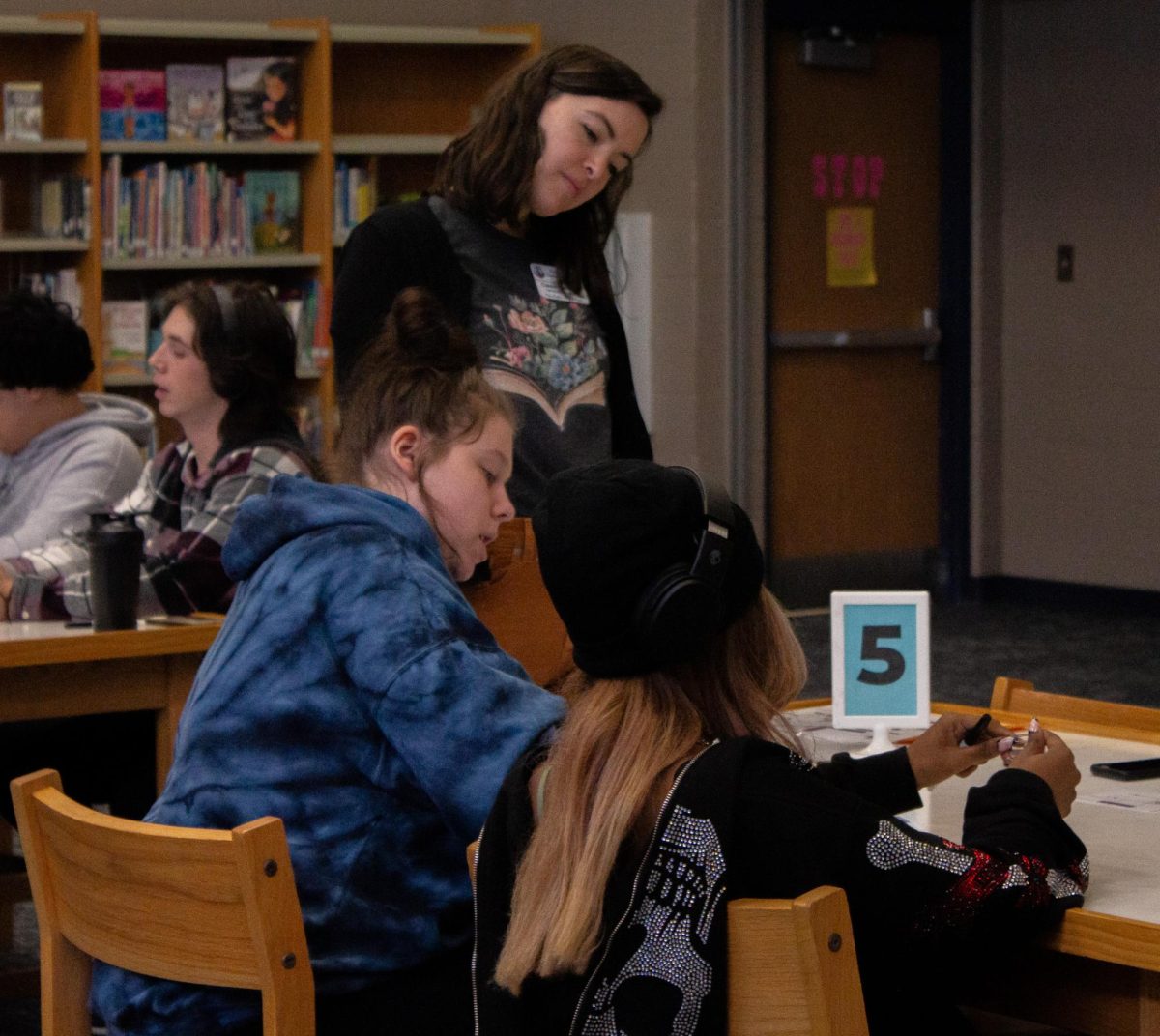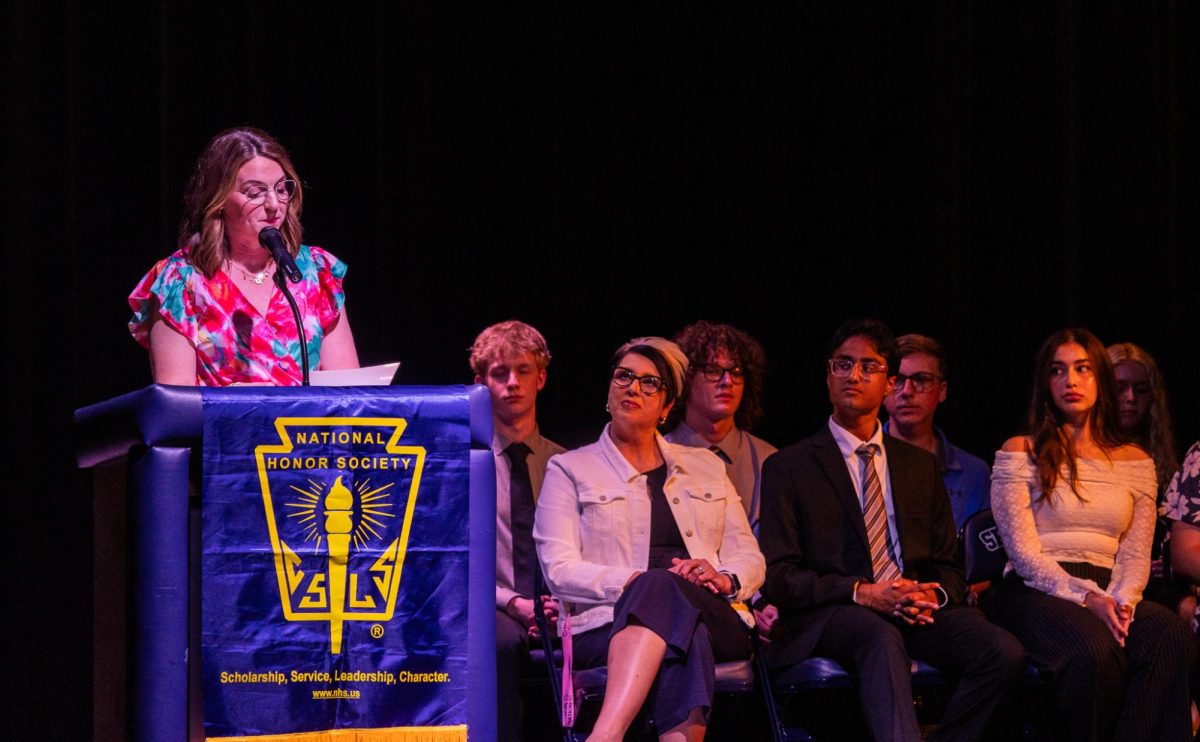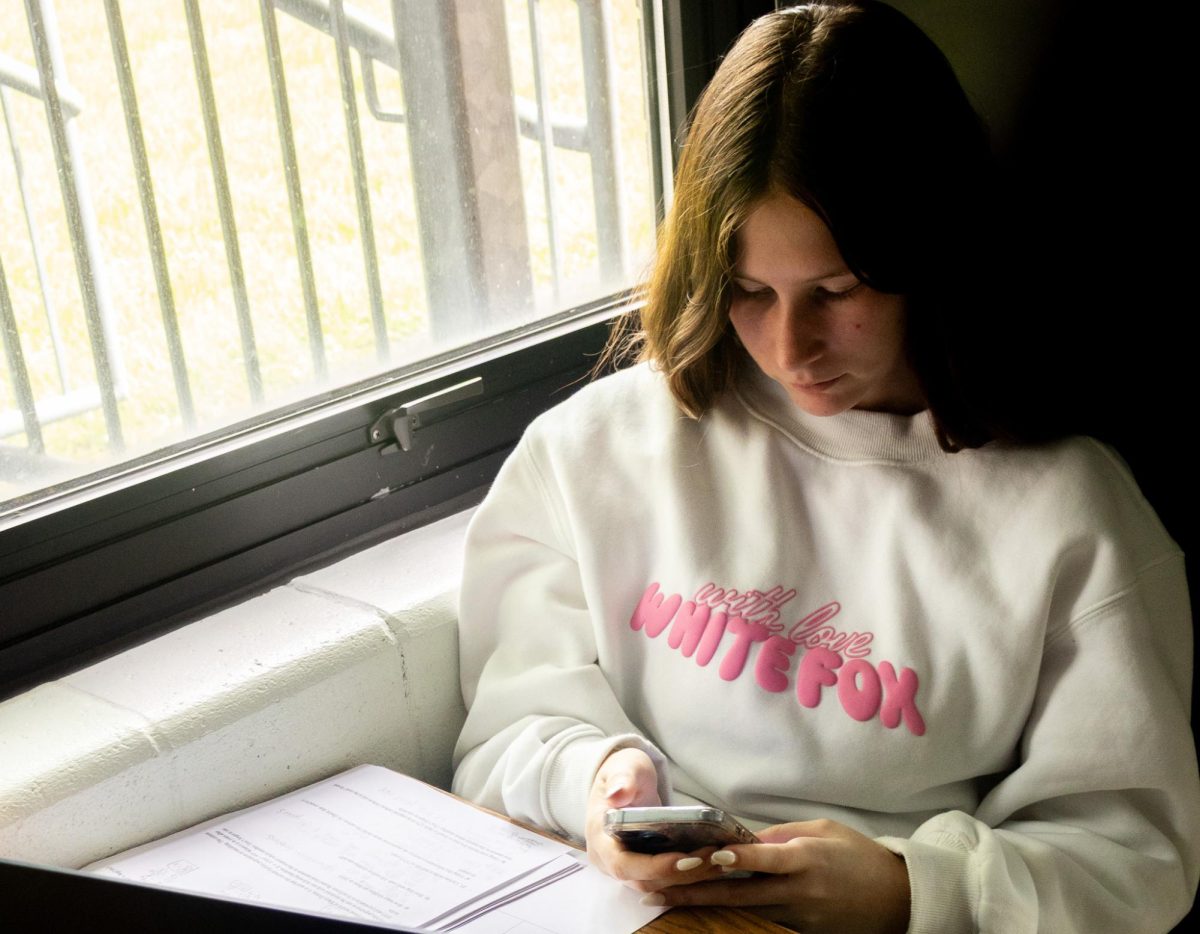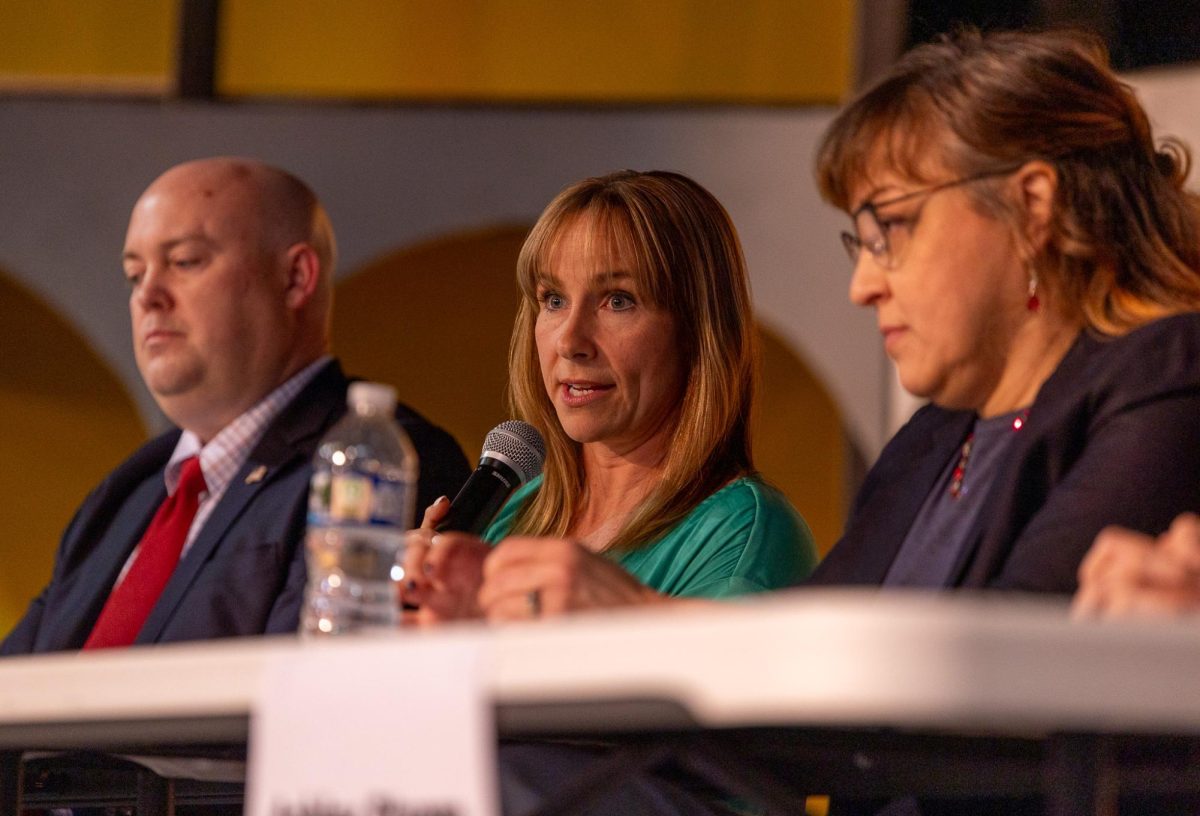Trotting down the hallway, students make their way to the Learning Commons instead of class. Through a Chromebook sign-in system, the students – truants to any unknowing onlooker – permit themselves access to the surplus of resources found in the library. The librarians allow this open entry because these are no truants. The students are exercising their privilege to travel on a Flex Day, a benefit of their choice in taking Blended Learning courses. Through Blended Learning, study hall, and time before and after school, the Learning Commons provides students with an opportunity to enjoy themselves and relax with board games, books, and occasionally table tennis. The true advantage of the library, though, is the chance to lighten the high school workload.
Many of the students going in and out of the Learning Commons want a place to quiet down and get work done. Freshman Austyn McBain said the atmosphere of the library helps with studying.
“I think the peacefulness of the library helps me stay on task. It lets me keep my focus,” McBain said.
With the relaxed environment of the Learning Commons, it supports students in the trials of second semester.
“Second semester can be really hard to find motivation for because I’m kind of over school at that point,” McBain said. “It helps to get together with friends in the library because we motivate each other to do well. It’s nice to have a starting place for my studying.”
The Learning Commons and its staff do all they can to support these students. Ms. Cassi Flores, the school’s library media specialist and co-sponsor of Epsilon Beta, says that the library resources and organization is beneficial to the students.
“I think the students really like being able to spread out all of their stuff at the big table spaces, as well as the comfy seating and the desktop computers. Those computers are definitely better than the slow Chromebooks,” Ms. Flores said.
As for the design of the Learning Commons, Ms. Flores thinks that the assorted activities found there let students come to the library for diverse purposes such as relaxation, reading, or doing homework. Many students go down to the Learning Commons, and many motivators attract them there.
“We talk a lot about having different zones. Having a quiet area in the back, having a computer space, and having a space up front for more group style work lets us provide different spaces for everyone’s needs,” Ms. Flores said.
“There’s always people being productive with their time, but it varies a lot,” Ms. Flores said. “I’d say that we have on average 80 to 100 students come by during the day. So sometimes it can be a bit more busy, sometimes not.”
Although students have a large variety of activities to take care of in the Learning Commons, the use of studying cannot be understated. When many classes in high school are exceedingly difficult, the extra time outside of class can be the influence that makes or breaks a student’s grade. Dr. Jane Kelley teaches AP Modern World History, and is certain that studying is not only an aid for her students on tests, but also as a life skill.
“I think that what you put into something is what you get out of it. If you’re putting in the time and effort then generally you will have a score or grade that reflects that,” Dr. Kelley said. “The skills you develop in K-12 really do serve you later in life. You’ll have different roles, and you’ll need to adapt to each one.”
She finds that schooling prepares students for the real world by placing them in a multitude of areas of study. Dr. Kelley further elaborated on the use of adapting to one’s role in life as well as their different types of courses.
“I’ve noticed that students complain about this idea that they have to learn different skills for different disciplines, like how writing for history is very different from writing for ELA or writing for science, or even showing work for math,” Dr. Kelley said. “But the reality is, part of being a student and being a person is developing the ability to adapt.”
As a habit to prepare students for adult life, studying and self-readiness remain a timeless classic. One that, if established early in high school, may prove to be beneficial to students’ futures. This valuable part of maturing into adulthood is fostered in nowhere better than the Learning Commons. A place of comfort and peace, students find themselves capable of tackling the struggles of adapting to their differing courses. McBain defines the importance of studying for her to be an adaptation of its own, from learning to practice.
“Studying for me is pretty important. I can learn something, but if I don’t practice it, I can forget all of it,” McBain said.










